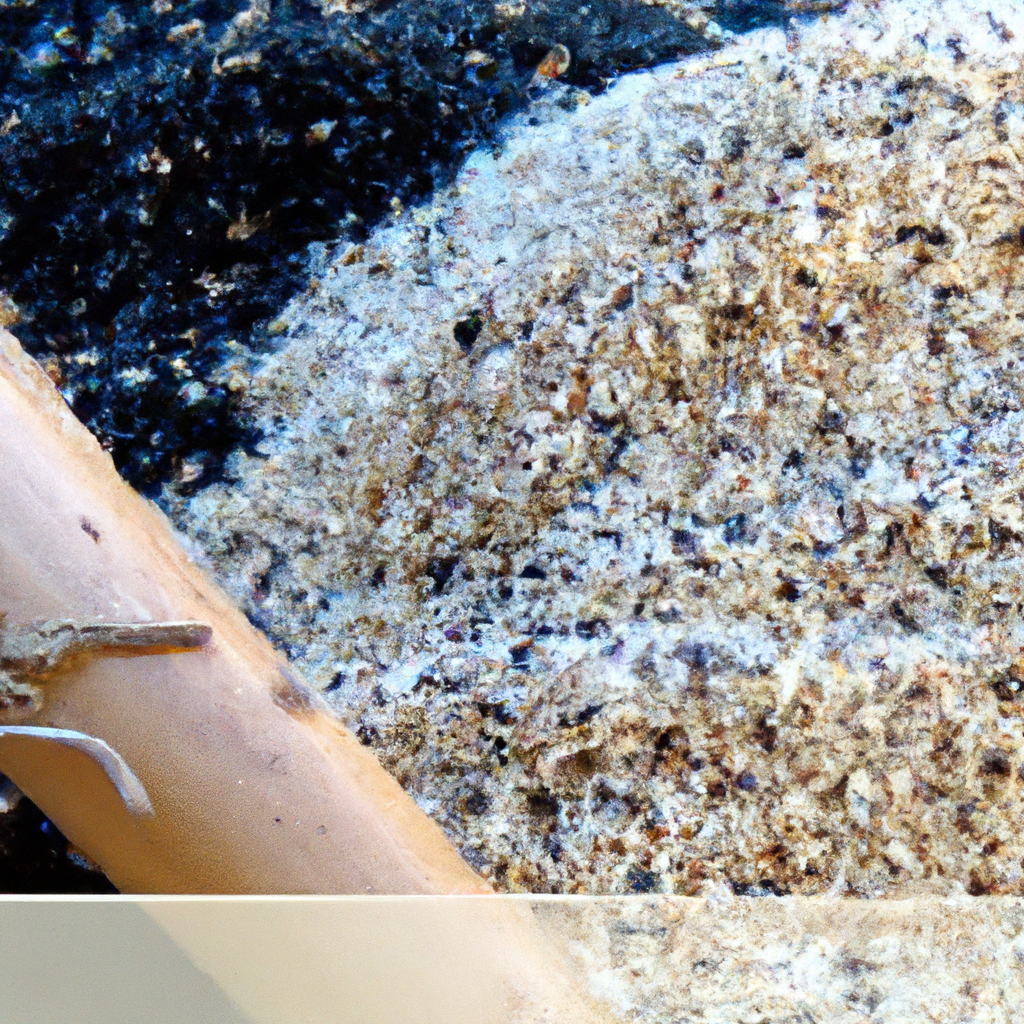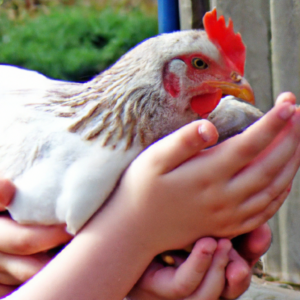
In the world of chickens, grit is an essential element for their overall health and well-being. But what types of grit should you offer your feathered friends, and why? Grit, which is essentially small, hard particles such as small stones or granules, serves a vital purpose in a chicken’s digestive system. It helps them break down food and aids in the grinding and digestion process. However, not all grit is created equal. So, let’s explore the different types of grit that you should consider providing to your chickens and uncover the reasons why it’s crucial for their overall health.

What is Grit?
Grit is an essential component in the diet of chickens, aiding in their digestion and overall health. It consists of small, hard particles that the chicken consumes to help grind up food in its gizzard, which is a muscular part of their stomach. Furthermore, grit plays a vital role in providing necessary minerals, regulating pH levels, and promoting strong bones and eggshells. In this article, we will explore the definition of grit, its importance for chickens, and the various types of grit available for them.
Types of Grit
There are two main types of grit: insoluble grit and soluble grit. Insoluble grit comprises hard, indigestible materials that help grind up food, while soluble grit provides essential minerals and aids in various bodily functions. Let’s take a closer look at each type and understand their benefits for your feathered friends.

Insoluble Grit
Definition
Insoluble grit refers to the harder types of grit, such as granite, flint, and crushed oyster shells, which help in the mechanical breakdown of food in the gizzard.
Composition
The composition of insoluble grit varies based on the type. Granite grit, as the name suggests, is made from small particles of granite, while flint grit consists of sharp-edged stones. Crushed oyster shells, on the other hand, provide a source of calcium along with other minerals.
Benefits
Insoluble grit offers several benefits for chickens. Firstly, it aids in digestion by grinding up food in the gizzard, which is particularly important for birds that free-range or consume whole grains. Secondly, it helps regulate the crop function, which is the organ responsible for temporarily storing and moistening food before digestion. Lastly, insoluble grit provides essential minerals such as calcium, ensuring the overall health and well-being of your chickens.
1. Granite Grit
Durable and Long-lasting
Granite grit is a popular choice among chicken owners because of its durability and long-lasting nature. The hard particles withstand the grinding process in the gizzard, allowing your chickens to effectively break down their food.
Improves Digestion
By grinding food into smaller, more digestible particles, granite grit assists in the digestion process. This is especially beneficial for chickens that consume whole grains or forage for their food, as it helps break down these fibrous materials.
Regulates Crop Function
The presence of grit in a chicken’s diet also helps regulate the crop function. The crop is responsible for storing food temporarily and breaking it down with the help of crop stones or grit. By aiding in this process, granite grit ensures the smooth functioning of the crop and efficient digestion.

2. Flint Grit
Sharp-edged and Abrasive
Flint grit is known for its sharp edges, making it an excellent choice for chickens that consume larger pieces of grain or fibrous materials. The abrasive nature of flint grit helps break down the food into smaller particles, making it easier to digest.
Aids in Grinding Food
With its sharp edges, flint grit aids in the grinding process within the gizzard, effectively breaking down tough food materials. This is particularly important for chickens that have limited access to free-range or forage, as it assists them in processing a wider range of feed.
Promotes Digestive Health
By helping chickens break down their food more efficiently, flint grit promotes better digestive health. It allows for the nutrients within the feed to be absorbed more effectively, ensuring optimal nutrition for your flock.
3. Crushed Oyster Shells
Source of Calcium
Crushed oyster shells are a rich source of calcium, an essential mineral needed for various bodily functions in chickens, including bone development and eggshell formation.
Promotes Eggshell Strength
Calcium plays a crucial role in ensuring the strength and integrity of eggshells. By including crushed oyster shells in the diet of your chickens, you provide them with the necessary calcium to produce strong and healthy eggs.
Regulates pH Levels in Gizzard
The presence of calcium in crushed oyster shells also helps regulate the pH levels in the gizzard, ensuring an optimal environment for digestion. This promotes overall digestive health and allows your chickens to effectively process their food.

Soluble Grit
Definition
Soluble grit, in contrast to insoluble grit, dissolves in the digestive system of chickens. It is usually composed of substances like calcium carbonate and limestone.
Composition
Soluble grit primarily consists of calcium carbonate and limestone, which dissolve in the chicken’s digestive system, providing essential minerals.
Benefits
Soluble grit offers several benefits for chickens, particularly in terms of mineral supplementation and digestion. Let’s explore some of these benefits further.
4. Calcium Carbonate Grit
Good Source of Calcium
Calcium carbonate grit is a valuable source of calcium for chickens. Calcium is essential for bone development, muscle function, and overall growth in poultry.
Promotes Strong Bones and Eggshells
By including calcium carbonate grit in your chicken’s diet, you ensure they receive the necessary calcium to develop strong bones and produce eggs with robust shells. This is particularly crucial for laying hens, as the process of eggshell formation requires significant amounts of calcium.
Aids in Blood Clotting
Apart from its role in skeletal development, calcium also aids in blood clotting. This ensures that chickens can heal properly from injuries or wounds, promoting their overall health and well-being.
5. Limestone Grit
Rich in Calcium and Magnesium
Limestone grit is rich in essential minerals, especially calcium and magnesium. These minerals contribute to bone health, muscle function, and overall growth in chickens.
Promotes Healthy Feathers and Beaks
The calcium and magnesium found in limestone grit are crucial for maintaining healthy feathers and beaks. These minerals play a vital role in the formation of keratin, the protein that makes up feathers and beaks, ensuring their strength and growth.
Aids in Digestion
Limestone grit aids in digestion by helping chickens break down their food effectively. It supports the overall digestive function and ensures the absorption of necessary nutrients from the feed.
Conclusion
Providing grit for your chickens is of utmost importance for their digestive health, overall well-being, and egg production. Insoluble grit, such as granite, flint, and crushed oyster shells, aids in grinding food, regulates crop function, and provides essential minerals. On the other hand, soluble grit, like calcium carbonate and limestone, offers mineral supplementation and aids in digestion. By choosing the appropriate types of grit for your flock, you ensure their optimal health and ensure they receive all the essential nutrients they need. So, make sure to include grit in your chicken’s diet and watch them thrive!







